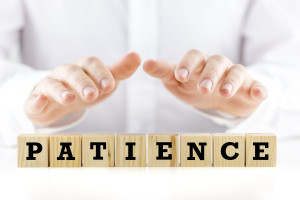 I shudder to think about how many car crash victims have settled their claims for peanuts, within a month or two of a crash, believing that their symptoms will quickly resolve with just a few more physiotherapy treatments. Sure, for some of those people their optimism may have been well placed, but I do not hear about those cases.
I shudder to think about how many car crash victims have settled their claims for peanuts, within a month or two of a crash, believing that their symptoms will quickly resolve with just a few more physiotherapy treatments. Sure, for some of those people their optimism may have been well placed, but I do not hear about those cases.
I hear about the injuries that did not resolve as anticipated, that have left people with chronic headaches and chronic pain that never goes away.
I hear these stories from spouses and friends who have hired me to assist them with their own claims, having learned from the bad experiences of others that while it is good to be optimistic, it is just plain wrong to allow the defending insurance company to capitalize on that optimism.
Please forgive me for making generalizations, but I believe these generalizations are reasonably accurate. The medical system will not admit defeat in the treatment of typical car crash injuries until it has taken its last gasp of air and has slumped on the ground. Just like the valiant knight in Monty Python’s The Holy Grail, the medical system will hop on its last leg, both arms and other leg having been severed, insisting that it will prevail.
This is a strength of our fantastic medical system. Sometimes, unfortunately, it does not prevail.
The family doctor will prescribe various treatments, confidently advising the car crash victim that the injuries will completely resolve. This is excellent advice. Optimism in the patient helps promote recovery, and in most cases the optimistic prognosis is accurate. The patient goes from one type of treater to the next, each time hoping for that optimistic result.
When these treatments fail to bring about a complete resolution of symptoms, the patient is often told that recovery will come with exercise and time. The prognosis immediately after a crash is total recovery in days or weeks. If symptoms continue, the prognosis for complete recovery is extended, and extended, and extended.
After dozens of treatments, months at a gym, and two to three years, the medical system might start to gently suggest to the patient that there might be a permanent problem.
The last gasp is typically a referral to a physiatrist (a specialist doctor in physical medicine and (rehabilitation), a referral that can take over a year. By that time, there have been perhaps three to four years of chronic pain, symptoms resolution is often no longer a realistic goal and optimism seems to lose its therapeutic value. The physiatrist is left with employing pain management techniques.
If the car crash victim’s case is settled or put before the court at any time before that last gasp, the medical prognosis will be for a complete resolution of symptoms. The medical prognosis is the most important factor in determining fair compensation. A temporary injury demands far less compensation than a permanent one.
After the claim has been resolved and the prognosis turns out to be wrong, there is no way for the injured victim to go back to the defending insurer or back to the court and ask for the fair compensation he or she was robbed of.
My advice? Share the optimism of the medical system and do absolutely everything you can do to try to get better. Please, though, do not allow the defending insurer to profit from that optimism and your very genuine desire and expectation that you will get better. Wait out the optimistic recovery time line. Ensure you are fairly compensated for your injuries.
Important: Your claim will dissolve if you do not take legal steps in a timely manner. See a lawyer to ensure the time limits applicable to your particular case are met.
______________________________________________________________________


0 Comments